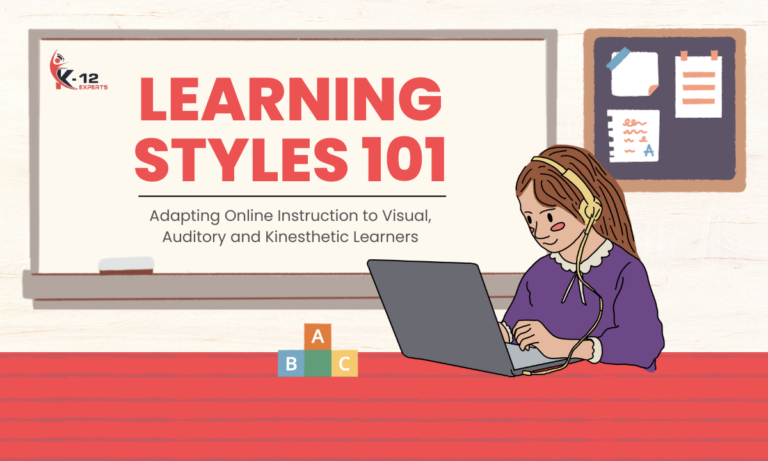Developing good study habits in your child is crucial for their future success. A well-organized study routine helps your child stay on track and make the most of their study time. To achieve this, start by setting up a dedicated study area with the necessary resources, such as a desk, chair, and good lighting.
Establish a daily study routine that includes specific times for homework, reading, and reviewing notes. Encourage your child to prioritize tasks, break them down into smaller chunks, and take regular breaks to avoid burnout.
Using a planner or calendar helps your child stay organized and keep track of assignments and deadlines.
Regularly review your child’s progress, provide feedback, and make adjustments to their study routine as needed. By being involved and supportive, you can help your child develop good study habits that will benefit them throughout their academic journey.
Establish a Designated Study Area
Designate a specific area for studying to help your child succeed academically. This space should be quiet, comfortable, and well-lit, with necessary resources like a desk, chair, and good lighting. Keep it organized and clutter-free to promote calmness and reduce stress.
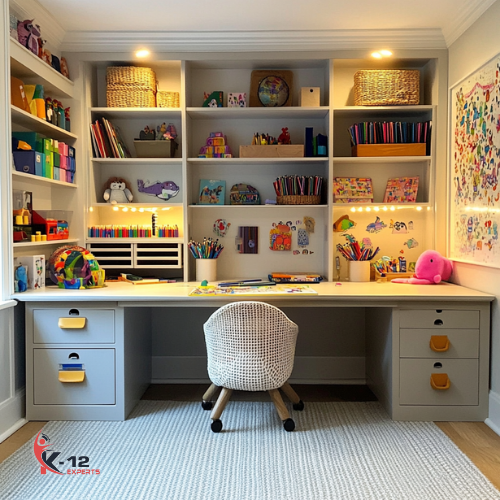
Having a dedicated study area is important because it helps your child associate this space with learning and focus. It minimizes distractions and interruptions, allowing them to concentrate on their studies. This autonomy helps your child take ownership of their learning, making it easier to stay motivated and develop good study habits.
For example, you can set up a desk in a quiet corner of their bedroom or create a study nook in a living room. Add good lighting, a comfortable chair, and necessary resources like a laptop, books, and stationery.
Keep this space organized by using storage bins, shelves, or a file cabinet.
Set Up a Study Routine
Setting up a study routine helps your child build good habits, stay focused, and manage time better. A balanced schedule allows for schoolwork and activities and avoids distractions, helping them prioritize tasks and avoid last-minute cramming.
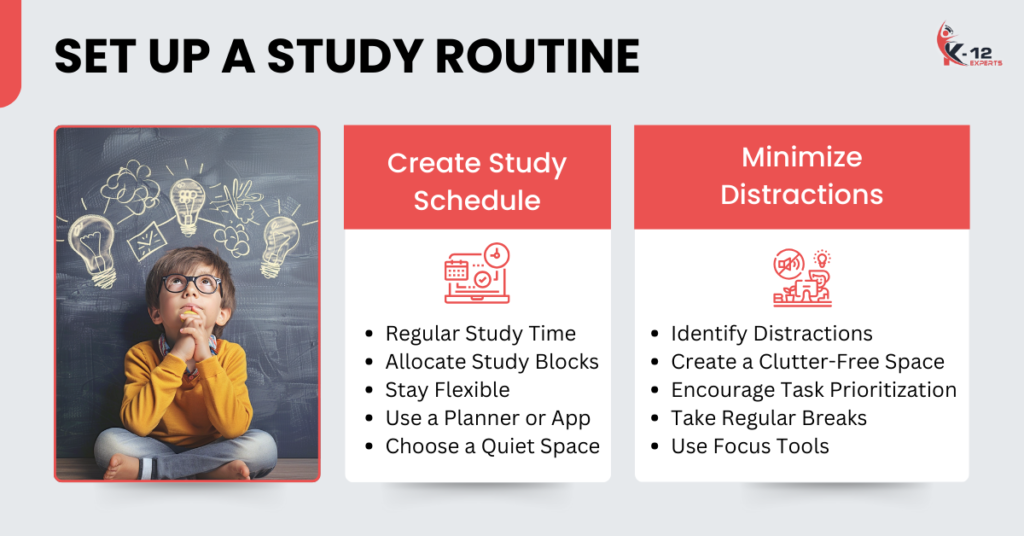
A well-planned schedule ensures assignments are completed on time, notes are reviewed regularly, and preparation for tests is thorough, reducing stress and boosting confidence.
To create a schedule, identify when your child is most productive—morning, afternoon, or evening. Then, set up dedicated study sessions in their planner, including regular breaks to keep them refreshed and motivated.
Create Study Schedule
Creating a study schedule is key to helping your child succeed in school. It provides structure, encourages time management, and helps them build good study habits.
Here’s how to create an effective study schedule:
- Set a Regular Study Time: Establish a consistent time each day, like after school or before dinner.
- Allocate Specific Time Blocks: Divide study time into segments, such as 30 minutes for math and 30 minutes for reading, and include short breaks.
- Make it Realistic: Tailor the schedule to your child’s age, energy levels, and attention span.
- Stay Flexible: Adjust the schedule as needed for changes in routine or unexpected events.
- Build Responsibility and Structure: A schedule helps your child prioritize tasks, manage time, and work toward academic goals.
- Identify Productive Times: Find when your child is most focused—morning or afternoon—and plan study sessions accordingly.
- Use a Planner or App: Keep track of tasks and stay organized.
- Choose a Quiet Study Space: A distraction-free environment helps maintain focus.
Minimize Distractions
To help your child stay focused, create a study routine that minimizes distractions. Start by identifying things that distract them, like social media, email, or phone notifications, and remove them while they study.
Make a quiet and comfortable study space that helps them concentrate. This might mean no TV or video games during study time.
Help your child prioritize tasks by breaking big assignments into smaller, manageable pieces. Encourage regular breaks to keep them productive. By setting up a distraction-free study routine, your child will develop the skills to stay on track, work independently, and achieve their academic goals.
A clutter-free study space is essential. It helps your child focus on their work. Consider using a desk or table instead of studying on their bed. This will help them associate the bed with sleep, not study.
You can also use tools like website blockers or apps that help them stay on track.
Encourage Active Learning Techniques
To help your child learn effectively, use active learning techniques. Have them summarize readings in their own words to grasp key ideas better.
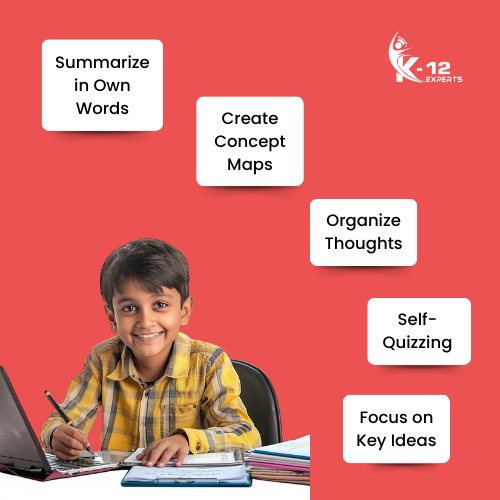
Creating concept maps or diagrams can also help them visualize connections between ideas, making it easier to organize their thoughts. For example, a concept map can clarify how different science concepts are related.
Self-quizzing is another valuable tool, as it helps identify areas where they need more practice and focus.
Minimize Distractions and Interruptions
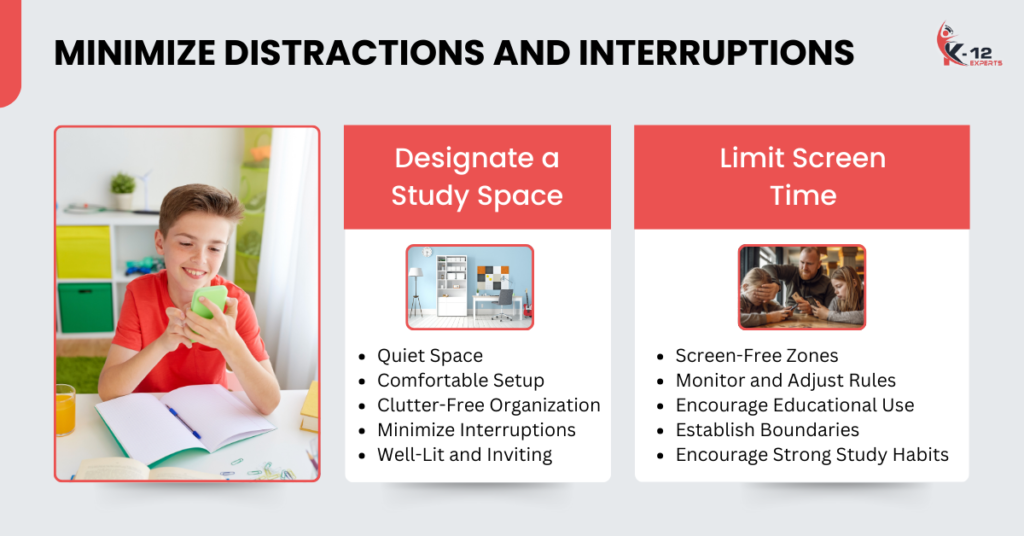
Create a dedicated, quiet, and comfortable study space for your child to minimize distractions. This separation of study time from playtime helps them focus better on schoolwork.
Ensure the space is clutter-free and equipped with necessary supplies like pencils and paper to maintain focus. Additionally, limit screen time, as excessive use of devices can be a major distraction. Establish boundaries to help your child build strong study habits.
For example, setting up a desk in a quiet corner away from TVs and video games can significantly improve concentration. Ensure the space is well-lit and comfortable, encouraging longer and more effective study sessions.
Designate a Study Space
A well-designed study space is essential for effective learning. A dedicated area helps your child develop a routine and focus better.
Why a Quiet Space Matters: A quiet environment is crucial for concentration. Select a room with minimal noise, like a home office or a quiet corner, to help your child stay focused and absorb information better.
Comfort is Key: A comfortable space can increase motivation and productivity. Invest in a supportive chair and good lighting. The room’s temperature should also be comfortable, creating a welcoming study environment.
Keep it Clutter-Free: A tidy space enhances organization and reduces stress. Provide storage solutions like bins and shelves to keep the area neat, helping your child stay focused without the distraction of searching for misplaced items.
Minimize Interruptions: Establish boundaries with family members to minimize interruptions, fostering independence and self-discipline. A “do not disturb” sign can serve as a helpful reminder during study time.
Characteristics of a Great Study Space
| Characteristics | Benefits | Tips |
| Quiet | Reduces distractions, improves focus | Choose a room with minimal noise |
| Comfortable | Boosts motivation, increases productivity | Invest in a good chair and proper lighting |
| Clutter-free | Enhances organization, reduces stress | Encourage your child to keep their space tidy |
| Minimal interruptions | Fosters independence, promotes self-discipline | Set boundaries with family members and siblings |
Limit Screen Time
Managing screen time is key to maintaining focus. Excessive screen use can be distracting and hinder concentration. Set clear rules for when and where screens can be used, such as keeping mealtime and the hour before bed screen-free. Limit activities like TV, video games, and social media during study periods.
Monitor and adjust screen time rules as needed to ensure productivity. Encourage your child to use educational digital tools, but avoid distractions like mindless scrolling.
Set a positive example by following these rules yourself. This teaches your child that screen time is a privilege, not a right, and helps them develop better study habits.
Consider using parental control software like Qustodio, Net Nanny, or Kaspersky Safe Kids to monitor and limit screen time. These tools allow you to set time limits, block specific websites, and oversee online activity, providing a balanced digital environment.
Foster a Growth Mindset Approach
When your child faces a challenge, do they get discouraged or see it as a chance to grow? A growth mindset helps them build resilience and perseverance by focusing on effort, progress, and persistence rather than innate talent.

For example, say, “You worked really hard on that problem” instead of “You’re so smart.” This approach keeps their love for learning separate from their self-worth, empowering them to tackle challenges, try new strategies, and seek help when needed.
By emphasizing effort, your child will view challenges as opportunities for growth, boosting their confidence and encouraging a more enjoyable learning experience.
Monitor Progress and Provide Feedback
Regularly monitoring your child’s progress and offering feedback helps them develop effective study habits. By checking in frequently, you empower them to take ownership of their learning, identify areas where they need support, and adjust their study plan as needed.
Constructive feedback encourages them to reflect on their learning process and understand what strategies work best.

Focus on setting specific, measurable goals. Break down larger objectives into smaller, achievable milestones to help your child see their progress and stay motivated. This approach fosters a sense of accomplishment and drives them to continue working toward their goals.
For example, if your child struggles with a particular subject, collaborate to create an improvement plan. This might include extra tutoring, using online practice resources, or adjusting their study schedule. Regular check-ins and tailored feedback will help them stay on track and reach their objectives.
When giving feedback, make it specific and actionable. Instead of simply saying “good job,” highlight what they did well and where they can improve. This approach helps your child clearly understand their strengths and areas for growth, guiding them toward continuous improvement.
Conclusion
You’ve helped your child develop strong study habits by creating a distraction-free study space, setting a regular routine, and encouraging active learning.
Regularly monitoring their progress and offering feedback helps address challenges early, keeping them on track. Set aside time each week to review assignments and provide guidance where needed.
Encouraging a growth mindset by praising effort fosters resilience and a love for learning, leading to steady improvement in their academic performance.
Frequently Asked Questions
How Can I Motivate My Child to Study Without Rewards?
Encourage a genuine interest in learning by connecting subjects to real life, like using math in cooking. Praise effort, not just grades, to build a growth mindset. Let them explore hobbies like coding, fostering a love for learning.
How Can I Help a Struggling Child Catch Up?
Identify problem areas and create a simple study plan with small, achievable goals. Provide consistent support and celebrate progress. Stay in touch with teachers to adjust the plan as needed.
Can Study Habits Be Adapted for Children With Special Needs?
Adapt study habits to their learning style—visual, auditory, or hands-on. Use tools like text-to-speech software and break tasks into smaller steps for better focus and confidence.
How Can I Help Without Doing the Work for Them?
Guide them but encourage problem-solving. Step back gradually to let them learn through practice, like letting go of a bike as they learn to balance.
What Role Should Technology Play in Studying?
Use technology wisely with educational apps and limit screen time. Tools like Trello can organize tasks, while sites like Khan Academy can make learning interactive. Set boundaries to prevent distractions and encourage offline activities.


